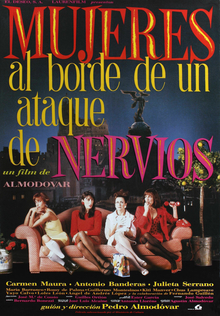
Good writers have the sense to borrow from their elders. Great writers steal! Liam Sommers (Daryl McCormack) is an aspiring ambitious young writer and Oxford English grad whiling away his twenties tutoring potential Oxbridge entrants for their exams. He eagerly accepts a position at the family estate of his idol, renowned author JM Sinclair (Richard E. Grant) who hasn’t published since the tragic death of his older son. Liam is tutoring his seventeen-year old son Bertie (Stephen McMillan) under the watchful eye of his French mother, sculptress and art curator Helene (Julie Delpy). JM is cold to Liam whereas Helene checks up on her son each day. Liam manages to help JM with a computer problem when the novelist can’t print something out. Liam wonders about a second server in another location in the house. Helene asks Liam about his writing – and reminds him he included his dissertation subject on his CV – JM Sinclair. His technological nous is such that Sinclair eventually offers him to swap novels. Liam compliments his idol’s work but says the ending feels like a different writer whereas JM destroys Liam’s efforts with cutting comments. Then Liam finds a file that illustrates that he is ensnared in a web of family secrets, resentment, and retribution … We don’t talk of his work, we don’t talk of Felix. Follow those rules and you should be fine. A working class wannabe is invited into a wealthy household and eventually his presence apparently destroys the power base and he is handed the keys of the kingdom. The head of household is played by Richard E. Grant. Sounds like Saltburn? Yes, and any or all iterations of Patricia Highsmith’s Ripley. In this case Grant is a revered novelist and the tutor for his truculent son has written his dissertation on him and has ambitions to write novels himself. And it appears that Delpy’s Helene is a real femme fatale as the story unravels. So we might call this Slowburn. In fact, it is a very clever wonderfully constructed mystery thriller focused on writerliness and authorship with death as its beating heart. Quite who might be teaching whom, and what the lesson is, changes with each of the three acts and there’s a great payoff (in fact, there’s more than one). Everyone’s intentions are concealed, nature and water are utilised symbolically to plunder the psychological text and the central motif – the rhododendron – is key to the family secret which spills out to engulf Liam, the visitor with ulterior motives. He is played by Irish actor McCormack, whose subtle ingratiating into this warped family picture is not necessary because for quite some time he’s the only person here who has no idea why he’s really been hired. As he adds to the Post-Its for his next novel trusted butler Ellis (Crispin Letts) takes note because the references are entirely parasitic, reminding us that this plot has been used before with Jean-Paul Belmondo in The Spider’s Web and Terence Stamp in Theorem, throroughoing murderous black comedies about the bourgeoisie eating itself. However, integrating the writing experience into this social analysis, the suicide of an older son and a wife’s intricate plan to get revenge while saving her younger son from the same fate, add an entirely new dimension to the premise by debut screenwriter Adam MacKeith. The scheme is brilliantly exposed, with even clever clogs Liam not anticipating the conclusion. You’re not the first. Grant is scarily good as the dinner table bully mercilessly exploiting his older son’s death in private while a chilly Delpy’s character has secrets in abundance. Beautifully shot by cinematographer Anna Patarakina at Haddon House in Derbyshire with a sharp score by Isobel Waller-Bridge to match the shrewd and finely etched performances, this is a marvellous watch, a modern British noir, with an appropriate reminder of an old school screen villainess in the film Grant’s vicious Sinclair watches in his cinema, another element of planting that pays off properly in a knowing thriller. Directed by first-timer Alice Troughton. What makes an ending?













